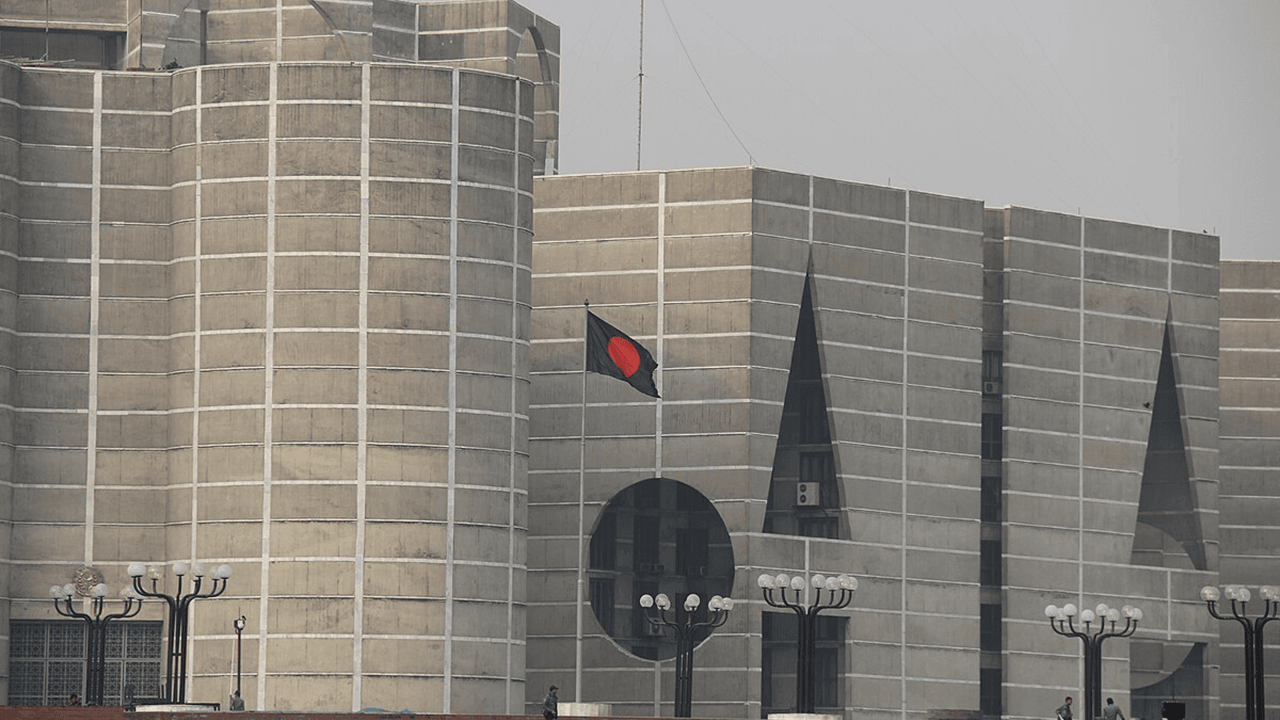To build peaceful, just, inclusive and sustainable societies, women’s equal participation and leadership in political and public life are essential. However, data show that women are underrepresented at all levels of decision-making worldwide and that achieving gender parity in political life is far off.
PGA members around the world are championing gender equality:
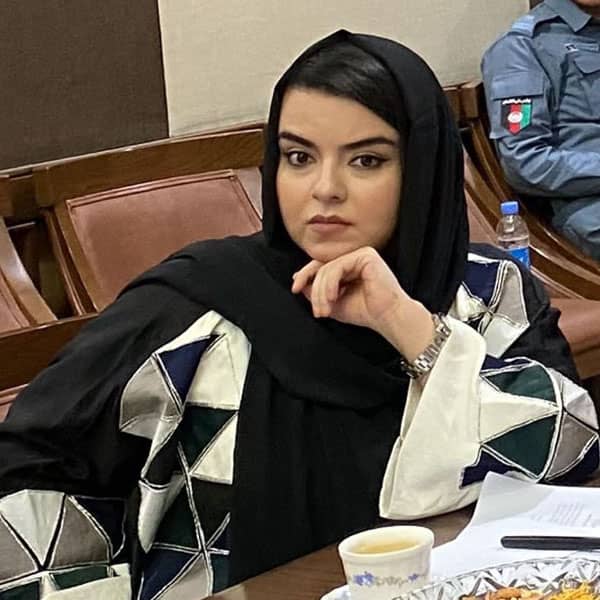 This International Women’s Day, remember the women who watched decades of progress vanish overnight, a reminder of the fragility of progress. Their resilience in the face of such adversity calls out for global solidarity. It’s our collective responsibility to stand with Afghan women, to reignite the flame of hope and drive forward the change that was so brutally taken away. Hon. Mariam Solaimankhil (Afghanistan)
This International Women’s Day, remember the women who watched decades of progress vanish overnight, a reminder of the fragility of progress. Their resilience in the face of such adversity calls out for global solidarity. It’s our collective responsibility to stand with Afghan women, to reignite the flame of hope and drive forward the change that was so brutally taken away. Hon. Mariam Solaimankhil (Afghanistan)Hon. Mariam Solaimankhil, MP in Exile
Afghanistan
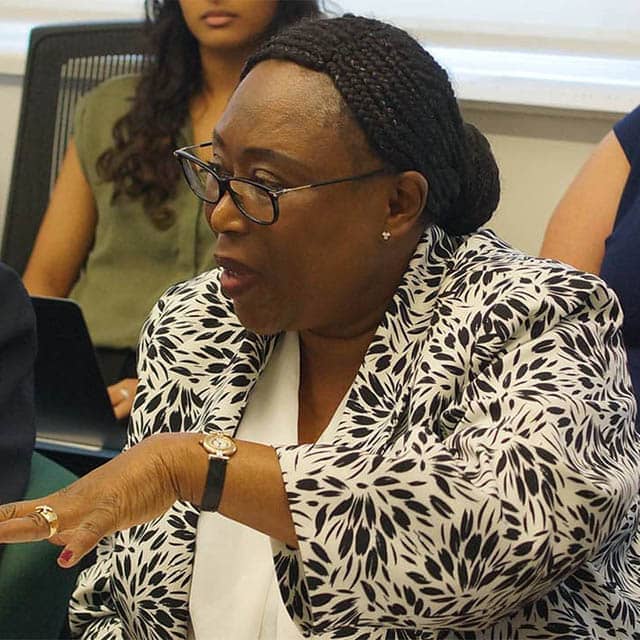 A lack of justice is leading to a decline in democracy. Our parliaments are weakened. Celebrating March 8, International Women's Rights Day, gives us hope for a new awareness that women parliamentarians are vectors of change.
A lack of justice is leading to a decline in democracy. Our parliaments are weakened. Celebrating March 8, International Women's Rights Day, gives us hope for a new awareness that women parliamentarians are vectors of change.Hon. Émilie Béatrice Epaye,
MP (Central African Republic)
Dep. Beatrice Epaye (Central African Republic), President of the Committee on Foreign Affairs
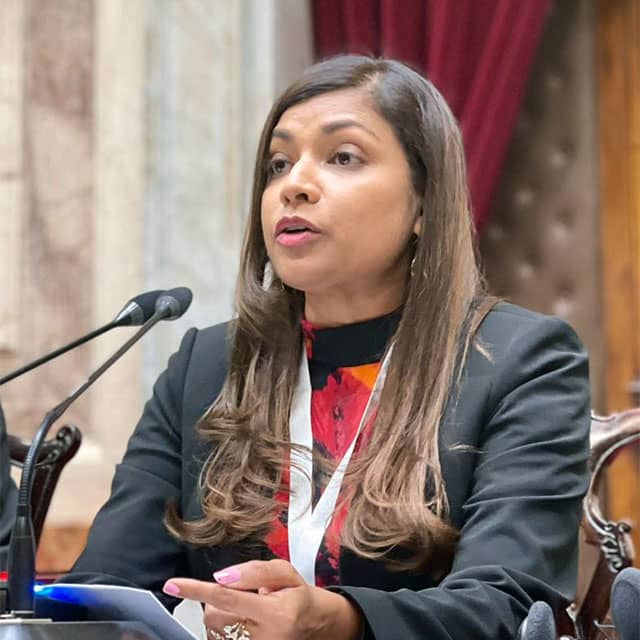 Investing in women is not an option! It’s a must! Building productive women is equal to doubling economic growth! Hon. Rozaina Adam (Maldives), Member of the Human Rights and Gender Committee
Investing in women is not an option! It’s a must! Building productive women is equal to doubling economic growth! Hon. Rozaina Adam (Maldives), Member of the Human Rights and Gender CommitteeHon. Rozaina Adam, MP
Maldives
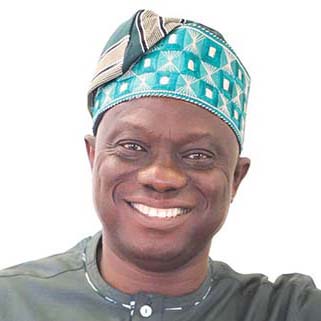
Hon. Bamidele Salam, MP
Nigeria
One of the surest routes to combating poverty, ignorance and disease is for governments all over the world to give priority to funding girl-child education, providing affordable maternal health care and improving access to finance for women entrepreneurs and small business owners.
Evidence abounds to show that investment in women reflects on the quality of life for children and the family as a whole.
Hon. Bamidele Salam (Nigeria), Chairperson of the Public Accounts Committee
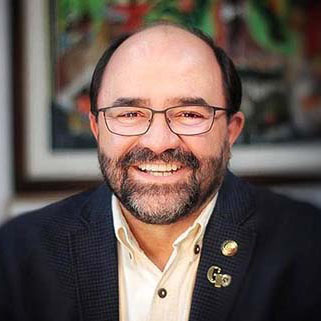
Sen. Emilio Álvarez
Icaza (Mexico) – Secretary of the Committee on Human Rights
Investing in the human rights of women and girls benefits us all. It advances the country, it advances democracy, but above all it advances dignity.
Fighting the poverty of women and girls, investing in them as subjects of rights and stop seeing them as objects, will lead us to move faster and more effectively in the fight against inequality, inequity and injustice. It is more than proven, if we invest in women and girls, the whole society wins.
It is very good that there are conventions and laws in favor of women's human rights. However, we have to advance in public policies that make equality a reality. We have to advance in parity and in stopping violence against women and girls.
We urgently need to advance in the construction of new masculinities and put an end to a patriarchal and sexist culture that causes so much pain and suffering.
Enough violence. Enough abuse!
Sen. Emilio Álvarez Icaza (Mexico) – Secretary of the Committee on Human Rights
 On the occasion of International Women’s Day, we are reminded that, while women bear a higher burden than men in the home and workplace, they still lag behind men in remuneration and recognition in too many places. Investing in women, recognising their equality, putting them on a par with men, makes good all-round sense. My call today is for a renewal of efforts all round to recognise that women are equal partners in development and for necessary measures to be implemented to ensure that words are translated into action. Invest in women today! Hon. Bernard Georges (Seychelles), Leader of Government Business at the National Assembly
On the occasion of International Women’s Day, we are reminded that, while women bear a higher burden than men in the home and workplace, they still lag behind men in remuneration and recognition in too many places. Investing in women, recognising their equality, putting them on a par with men, makes good all-round sense. My call today is for a renewal of efforts all round to recognise that women are equal partners in development and for necessary measures to be implemented to ensure that words are translated into action. Invest in women today! Hon. Bernard Georges (Seychelles), Leader of Government Business at the National AssemblyHon. Bernard Georges,MP
(Seychelles), Leader of Government Business at the National Assembly
According to 2023 data from PGA’s Parliamentary Toolbox for Democracy Defense
- Only 26.5 percent of parliamentarians in single or lower houses are women, up from 11 percent in 1995.2
- Only six countries have 50 percent or more women in parliament in single or lower houses: Rwanda (61 percent), Cuba (53 percent), Nicaragua (52 percent), Mexico (50 percent), New Zealand (50 percent), and the United Arab Emirates (50 percent).3
- A further 23 countries have reached or surpassed 40 percent, including 13 countries in Europe, six in Africa, three in Latin America and the Caribbean, and one in Asia.4
- Globally, there are 22 States where women account for less than 10 percent of parliamentarians in single or lower houses, including one lower chamber with no women at all.5
- At the current rate of progress, gender parity in national legislative bodies will not be achieved before 2063.6
- Women hold 36 percent of parliamentary seats in Latin America and the Caribbean and make up 32 percent of parliamentarians in Europe and Northern America. In Sub-Saharan Africa, there are 26 percent of women legislators, followed by Eastern and South-Eastern Asia with 22 percent, Oceania with 20 percent, Central and Southern Asia with 19 percent, and Northern Africa and Western Asia with 18 percent of women Members of Parliament.7


